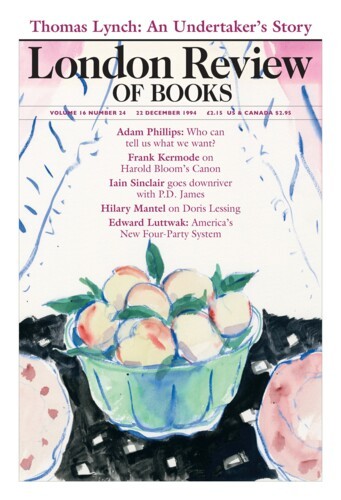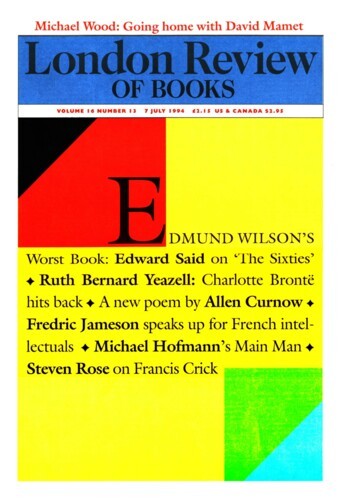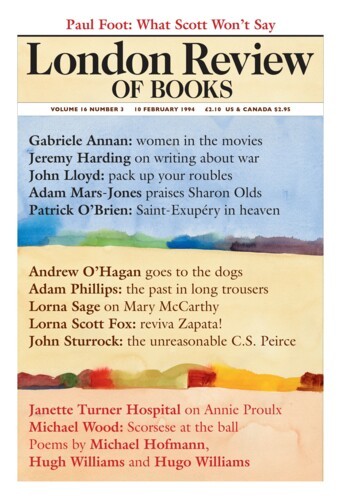Bit by Bit
John Sturrock, 22 December 1994
What should a man famous for having wished the Author dead wish for himself once he becomes a dead author? To leave no trace behind would seem right. But if Roland Barthes was hostile to the neighbourly image of the Author as an extra-textual being, he took pleasure in the thought of himself returning as a biographical subject (i.e. object) once he was dead. In the Preface to Sade, Fourier, Loyola, he laid down the quite meetable conditions under which he would agree to pass into the hands of futurity: ‘Were I a writer, and dead, how I would like my life to be reduced, by the attentions of a friendly, carefree biographer, to a few details, a few tastes, a few inflections, let’s say “biographemes”.’ At the end of the same book, by way of illustrating the kind of casual memorial he had in mind, he included ‘lives’ of two of its three subjects, Sade and Fourier: a few numbered ‘biographemes’, strewn through space ‘like the atoms of Epicurus’. Epicurus’ atoms were hooked and Barthes’s typically sensuous fancy was that these errant particles might link up with hospitable fellow atoms in the living, so ensuring a small measure of – fragmentary – survival.’





